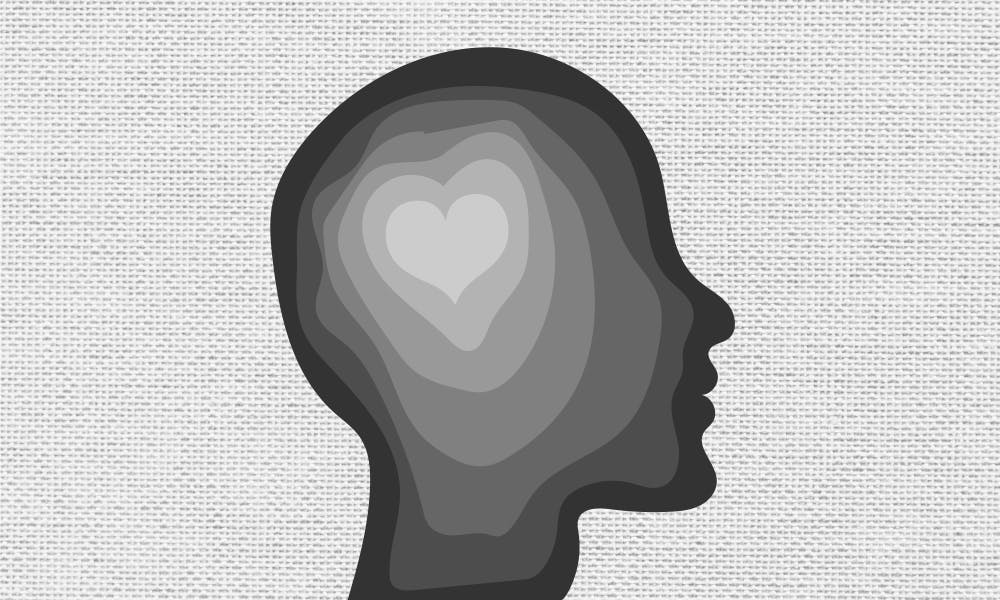
I remember waking up in my Hamilton Court apartment in a paralyzing state of despair. I could hear students partying outside my window on the street by the Blarney Stone — it was the weekend before St. Patrick’s Day. By contrast, I was so overcome with an inexplicable anxiety that I struggled to get out of bed. It was a familiar episode, but its familiarity did nothing to dull its sharp edges: I couldn’t escape the sense that life was fraught with pain and that I was somehow fundamentally broken.
That semester — the spring of my senior year — I told my Counseling and Psychological Services counselor that I felt trapped: For years, whenever I seemed to have gotten better, I’d fall right back into that same cycle of despair. I felt destined to always suffer — if I hadn’t been able to overcome it yet, why should I believe that I ever would?
A psychiatrist gave me a metaphor for this feeling: My car was stuck in a ditch, and I was spinning my wheels but hardly moving. My treatment would give my car the push it needed to emerge from the ditch.
When I read the news of CAPS Director Gregory Eells’ death, I thought instantly of that helplessness I’d felt my senior year. Every loss to suicide is a horrific tragedy, and in the fragile state I’d been in that spring, his death would’ve likely fueled my belief that I’d never stop suffering.
That’s why I’m sharing my story with you, fellow Quaker. This column is for all the students at Penn who may have been feeling that way in the past few days. I want you to see what it looks like when you overcome your suffering — when you make it out of the ditch.
CAPS equipped me with the diagnoses and referrals I needed to begin to turn the tide. After a few more years of on-and-off therapy and trying several different medications, I made it onto solid ground: It’s now been several years since my last bout of anxiety and depression. I am living the full, rich life of a mentally healthy adult — something I thought was impossible in the depths of my mental illness.
There were many peaks and valleys along the way, and there’s no telling what surprises life has in store for me. Your recovery, too, will follow its own unique path. What I know now is that if I relapse, I will have the tools I need to recover and the knowledge that the illness will pass.
An avid "Grey’s Anatomy" fan, I’m reminded of something Dr. Meredith Grey told a young patient: “You don’t know this yet, but life isn’t supposed to be like this. It’s not supposed to be this hard.”
You are not destined to suffer, dear reader. Life isn’t supposed to be this hard. Millions of us have made it out of that steep, muddy ditch, and we will stand with you roadside to help shepherd you to safety.
CAMPUS RESOURCES
The HELP Line: 215-898-HELP
Counseling and Psychological Services: 215-898-7021 (active 24/7)
Student Health Service: 215-746-3535
Office of the Vice Provost for University Life: 215-898-6081
University Chaplain’s Office: 215-898-8456
Reach-A-Peer Helpline
- 215-573-2727 (every day from 9 p.m. to 1 a.m.)
- 215-515-7332 (texting service available 24/7)
SARAH GADSDEN is a 2013 College graduate and former Managing Editor of The Daily Pennsylvanian. Her email address is sarahgads@gmail.com.
The Daily Pennsylvanian is an independent, student-run newspaper. Please consider making a donation to support the coverage that shapes the University. Your generosity ensures a future of strong journalism at Penn.
Donate






